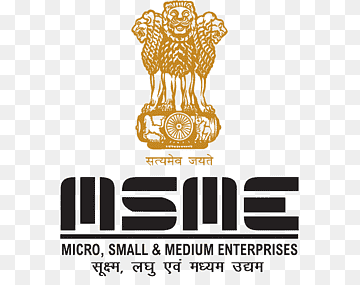Mental maths is a crucial skill that enhances problem-solving abilities, boosts confidence, and sharpens cognitive functions. The abacus is one of the most effective tools for developing mental calculation skills. Used for centuries, the abacus is a powerful learning aid that helps individuals perform arithmetic operations quickly and accurately. In this blog, we will explore how to improve mental calculation skills using an abacus and why this ancient tool remains relevant in the digital age.

Benefits of Using an Abacus for Mental Maths
1. Enhances Number Sense
An abacus helps learners develop a strong number sense by providing a tangible way to understand mathematical concepts. The hands-on experience of moving beads strengthens their ability to comprehend numerical relationships and patterns.
2. Improves Memory and Concentration
Regular practice with an abacus improves memory retention and focus. Since users need to visualize and remember bead positions, their concentration skills naturally develop, aiding in faster mental calculations.
3. Strengthens Mental Maths Abilities
By repeatedly using an abacus, learners can transition from physical calculations to mental calculations. With time, they no longer need to use the physical device, as their brain automatically visualizes the beads and solves problems mentally.
4. Boosts Problem-Solving Skills
Mental maths through abacus training fosters logical thinking and problem-solving abilities. This skill is beneficial in daily life, competitive exams, and professional careers where quick mathematical calculations are required.
5. Builds Confidence in Mathematics
Many students struggle with math due to a lack of confidence. Using an abacus to master mental maths helps eliminate math anxiety, making learners more comfortable with numbers and calculations.
6. Enhances Speed and Accuracy
The more you practice mental maths using an abacus, the faster and more accurate you become at solving problems. This skill is particularly useful for students preparing for exams or professionals who need quick calculations in their work.

Steps to Improve Mental Calculation Skills Using an Abacus
Step 1: Learn the Basics
Before diving into complex calculations, start by understanding the structure of the abacus. Learn how each row represents place values (units, tens, hundreds) and practice moving beads to perform basic arithmetic operations like addition and subtraction.
Step 2: Master the Abacus Techniques
Once familiar with the basics, focus on mastering abacus techniques such as the “finger technique” and “visualization method.” These techniques help speed up calculations and strengthen mental visualization skills.
Step 3: Transition to Mental Calculations
As you gain proficiency, begin visualizing the abacus in your mind rather than using the physical device. Start with simple calculations and gradually increase the complexity. This step is crucial in developing fast mental maths skills.

Step 4: Practice Regularly
Consistent practice is key to mastering mental maths. Set aside dedicated time each day to practice abacus exercises, solve arithmetic problems, and challenge yourself with timed tests. The more you practice, the more natural mental maths will become.
Step 5: Use Flashcards and Games
Engage in fun and interactive learning methods such as flashcards, abacus apps, and mental math games. These activities reinforce learning and make the process enjoyable, keeping learners motivated.
Step 6: Apply Skills in Real Life
To make mental maths second nature, apply it in everyday situations. Calculate grocery bills, estimate discounts, and solve quick math problems without using a calculator. Practical application enhances speed and accuracy.
Step 7: Set Challenges and Track Progress
Set personal goals and track your progress over time. Challenge yourself with mental maths exercises and compare your current speed and accuracy with previous performances. This will keep you motivated and help you see improvements.
Step 8: Join a Learning Program
For those looking for structured guidance, joining an abacus or mental maths training program can be beneficial. Professional instructors provide systematic learning approaches, personalized feedback, and advanced techniques to enhance your mental calculation skills.
Why the Abacus is Still Relevant Today
Despite technological advancements, the abacus remains an effective tool for developing mental maths skills. It not only improves math proficiency but also enhances cognitive abilities, memory, and problem-solving skills. Additionally, many schools and learning centers continue to incorporate abacus training into their curriculum to help students build a strong mathematical foundation.
Moreover, in an era dominated by digital calculators and smartphones, relying on mental maths skills fosters independence and sharpens analytical thinking. Instead of being dependent on technology for simple calculations, individuals trained in abacus-based mental maths can solve problems quickly in their heads, giving them a competitive edge in academics and professional life.

Final Thoughts
Improving mental maths skills using an abacus is a rewarding journey that requires dedication and practice. By mastering the abacus and transitioning to mental calculations, learners can gain confidence in their mathematical abilities and perform calculations with speed and accuracy. Whether you are a student, parent, or professional, integrating abacus training into your routine can unlock new levels of mathematical proficiency and cognitive growth.
Mental maths is a lifelong skill that not only enhances academic performance but also strengthens everyday decision-making. Start your abacus journey today and experience the power of mental maths!




